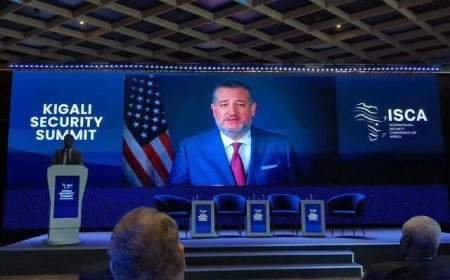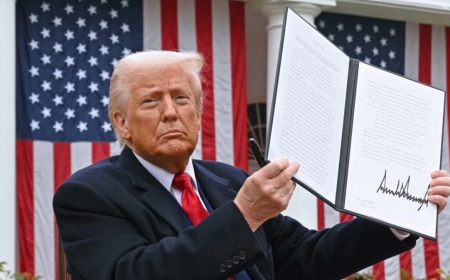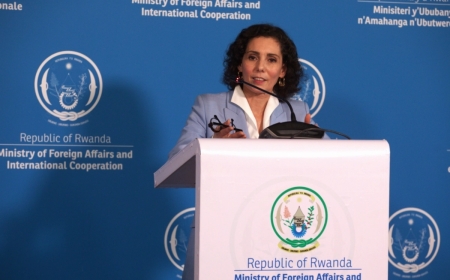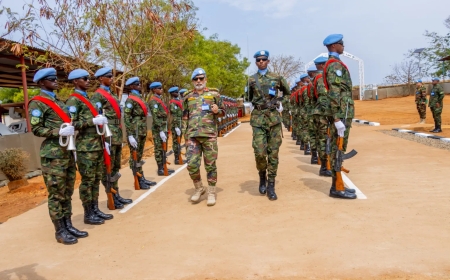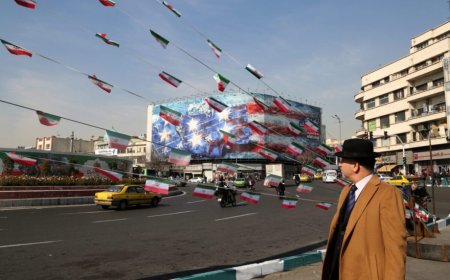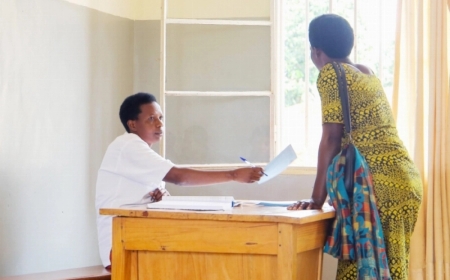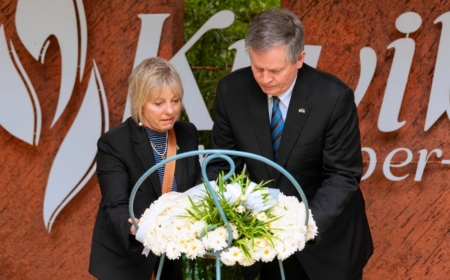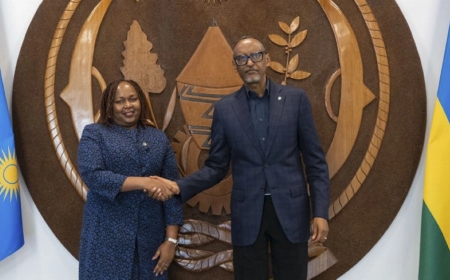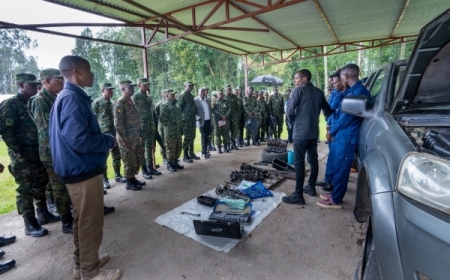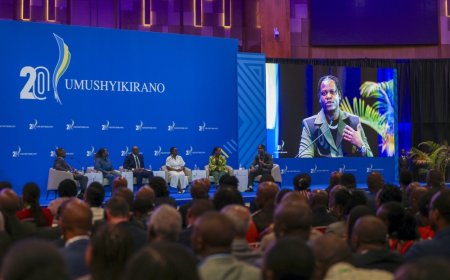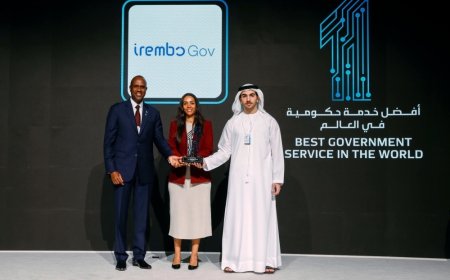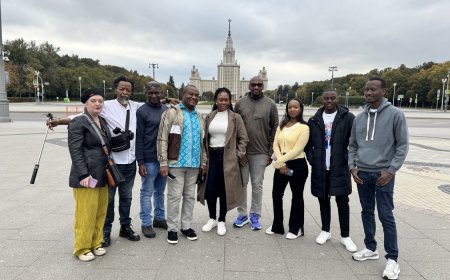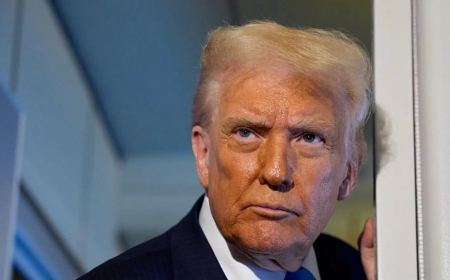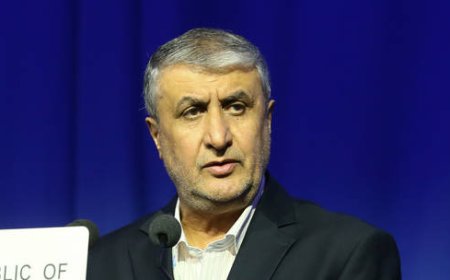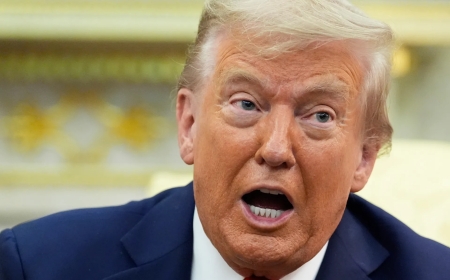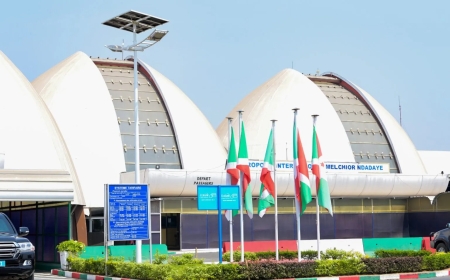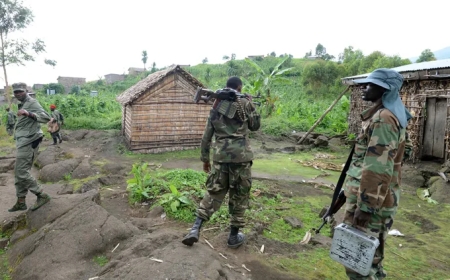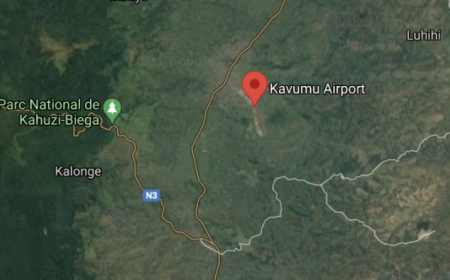Rwanda-DR Congo: New deal for major economic partnerships in pipeline
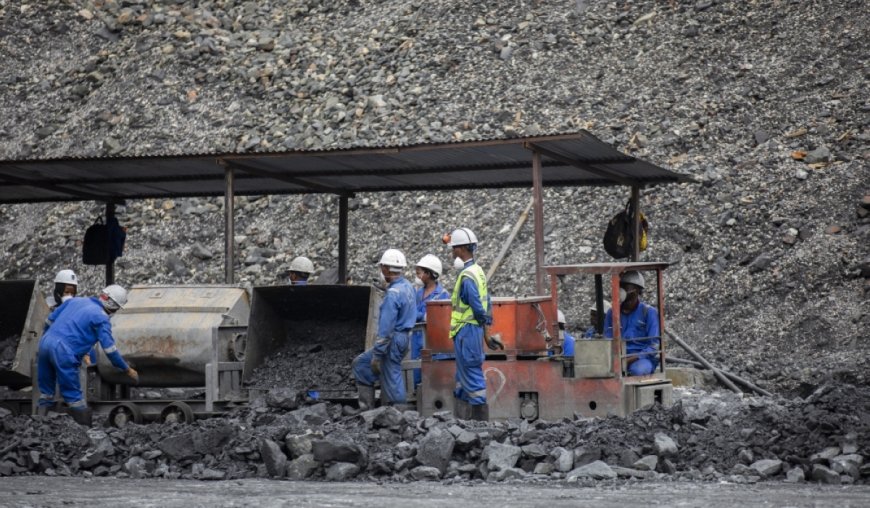
The US Department of State, on Saturday, August 1, released a new document outlining a number of economic areas in which Rwanda and DR Congo have showcased "intent" to partner, as part of the June 27 US-brokered peace deal inked between the two countries.
The statement noted that both countries "are intending" to chart a future of "mutually beneficial partnerships, greater connectivity with international and regional economic development initiatives, and investment opportunities."
Mining, infrastructure, energy, industrial development, agribusiness, public health, and national park management, are among the areas cited for partnerships.
The intended cooperation is under the Regional Economic Integration Framework (REIF), one of the new aspects that were hinted at during the signing of the June 27 deal, though it will be inked in a separate agreement.
In its August 1 statement, the US Department of State said Rwanda and DR Congo will outline the coordination mechanisms to conduct planning and implementation of the REIF, and reaffirmed that this will be carried out in "full compliance with the sovereignty, laws, and regulations of each country."
Expectations from the REIF
Cooperation, complementarity in the mining sector:
The US Department of State says the two neighbouring countries intend to building on their complementarities to promote a balanced and forward-looking framework for economic cooperation aimed at supporting formal mining activities.
As such, they also aim at strengthening regional value chains and ensuring the development and responsible management of new infrastructure, particularly in the logistics and energy sectors.
As a priority, the statement noted, that the two countries are seeking to combat and progressively eliminate illicit activities associated with the extraction, trade, movement, and processing of mineral resources, which undermine peace, security, and good governance in the region.
"The participants (Rwanda and DR Congo) aim to promote a professional, rules-based, and productive regional economy, particularly with regard to mineral value chains, that benefits local communities above all," the statement read.
Each country also stressed that the communities need to benefit from the revenues and other advantages derived from their extraction, processing, and commercialisation.
Cooperation in the energy sector
The REIF also aims to ensure increased electricity generation and access for both industry and households and identify prospects for a regional power pool between Rwanda and DR Congo.
For instance, the two countries "intend" to prioritise the "financial close" of the Ruzizi III hydropower project, as well as the coordinated and sustainable exploitation of methane gas from Lake Kivu for electricity generation and transmission
Cooperation in infrastructure development
Mutually beneficial infrastructure, especially transportation, logistics, and information and communications technology (ICT) infrastructure are also key points of cooperation cited under the REIF.
The two countries "intend to develop passenger and cargo transportation infrastructure and warehouse, port, and market infrastructure and cooperate to attract and leverage private sector investment in infrastructure that enables economic growth in the Great Lakes region," the statement says.
Partnerships in tourism, park management
Cooperation for strengthening cross-border conservation and park management activities and ensure science-based management of biodiversity and ecosystems will also be an important element of the REIF.
Rwanda and DR Congo governments said they are committed to developing an expanded cross-border security strategy across the trans-boundary landscape to improve coordination and cooperation related to threats within the respective parks through coordinated enforcement mechanisms and legal harmonisation.
They also intend to create an enabling environment for the development of a sustainable cross-border tourism industry, and to support each other’s tourism operators.
Public health partnerships
The two countries also said they intend to cooperate to strengthen cross-border cooperation to prevent and control the spread of diseases and promote enhanced public health.
Here, the statement noted that the governments of both countries would put together efforts in the cross-border area effectively preventing outbreaks, pandemics, and epidemics, and exploring options for information sharing to promote scientific research and health-related commercial opportunities.
